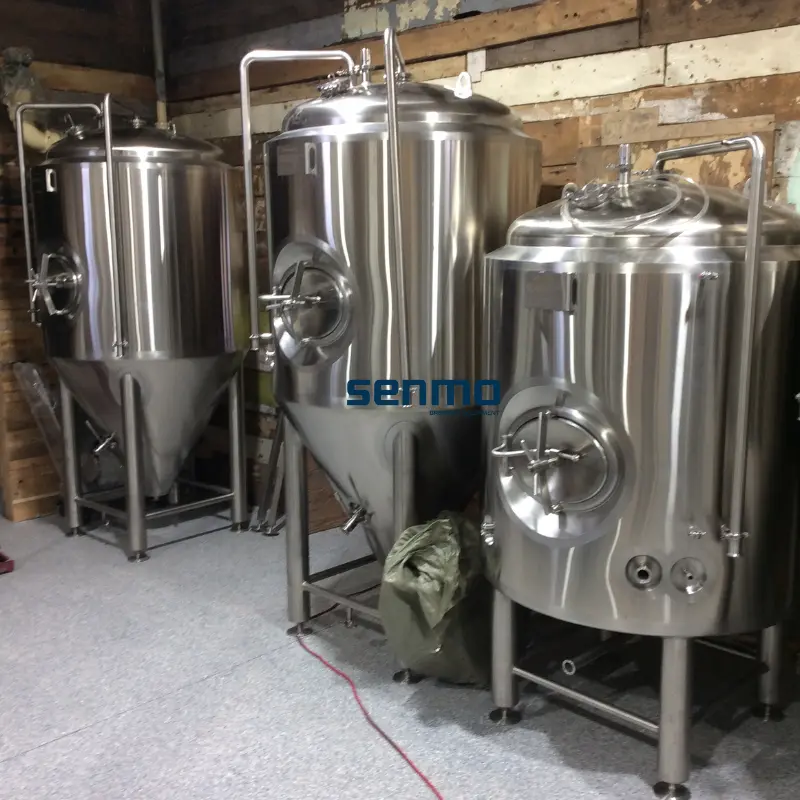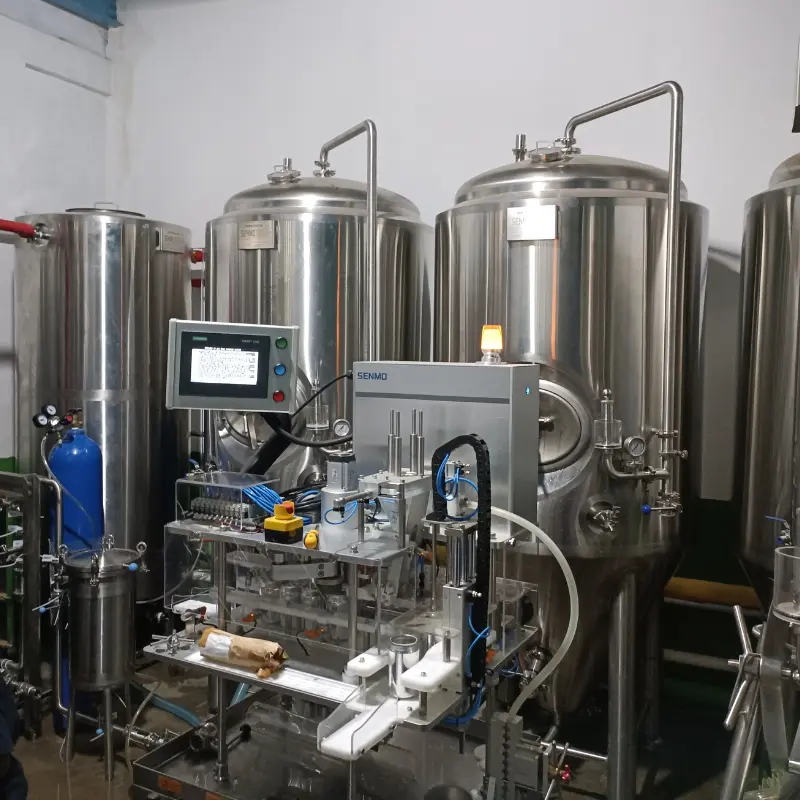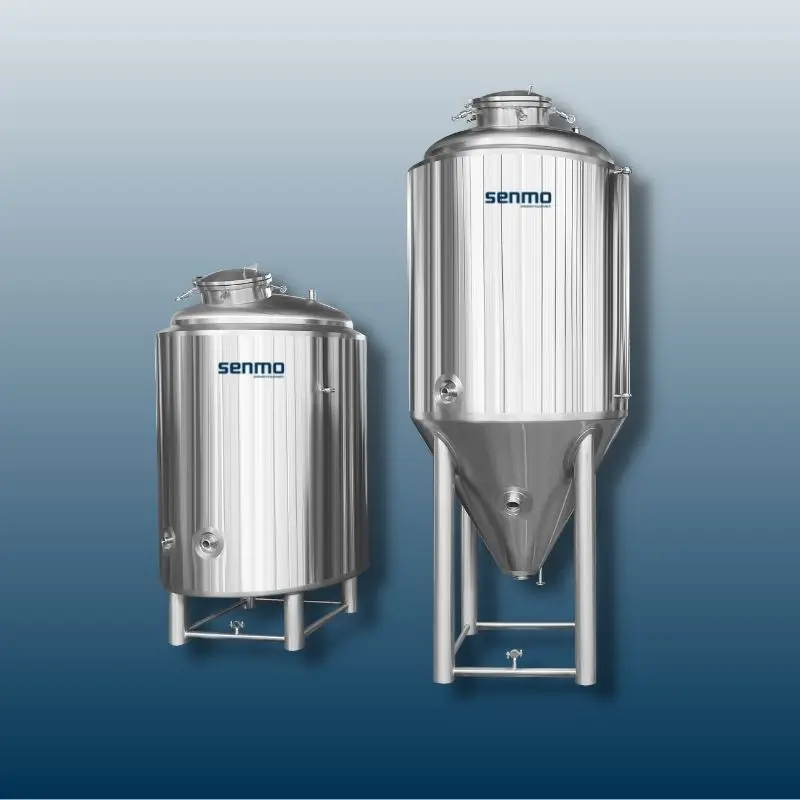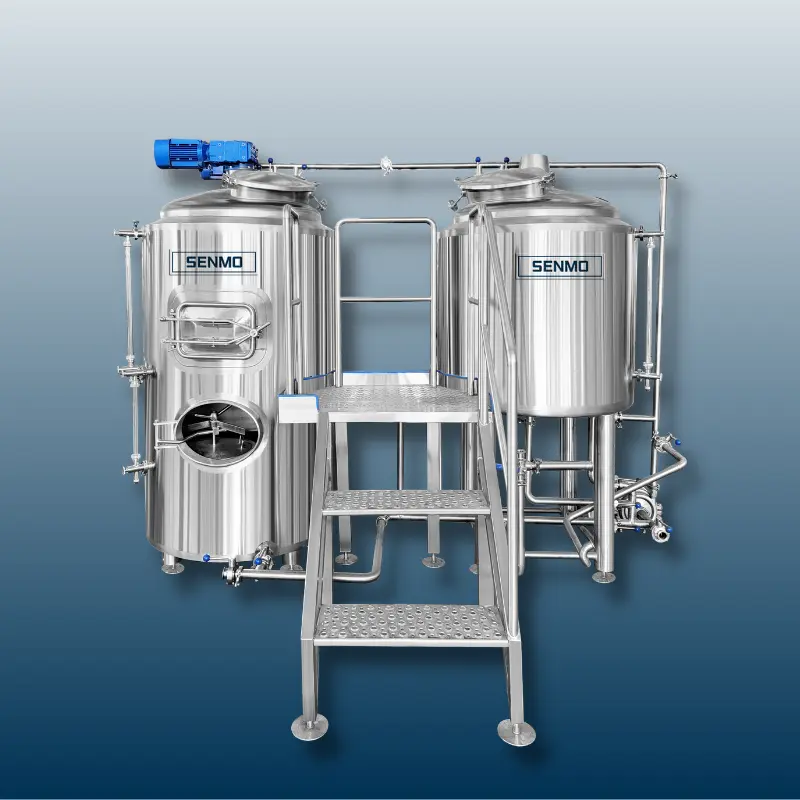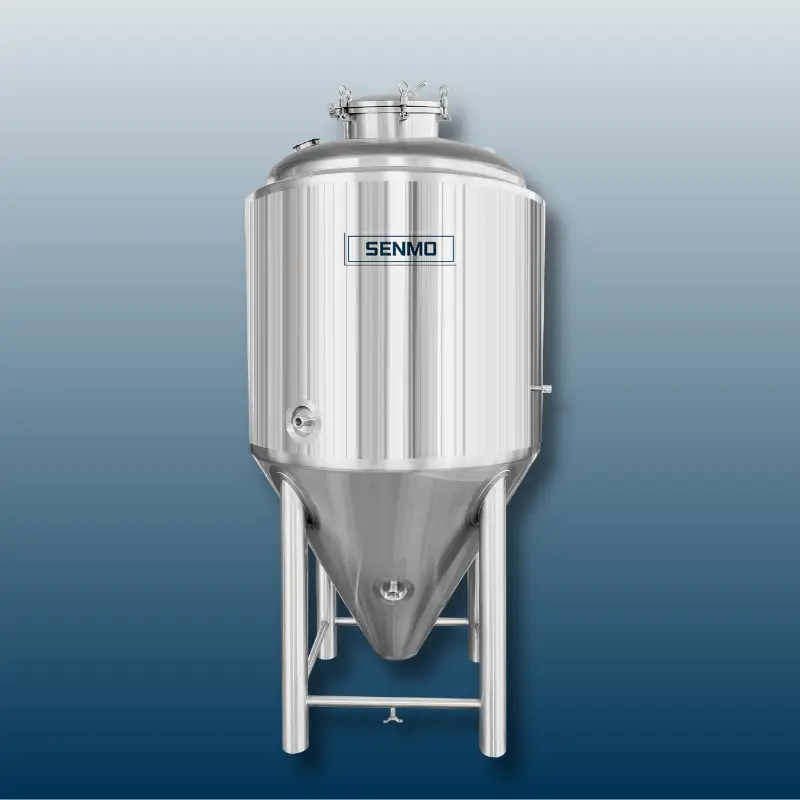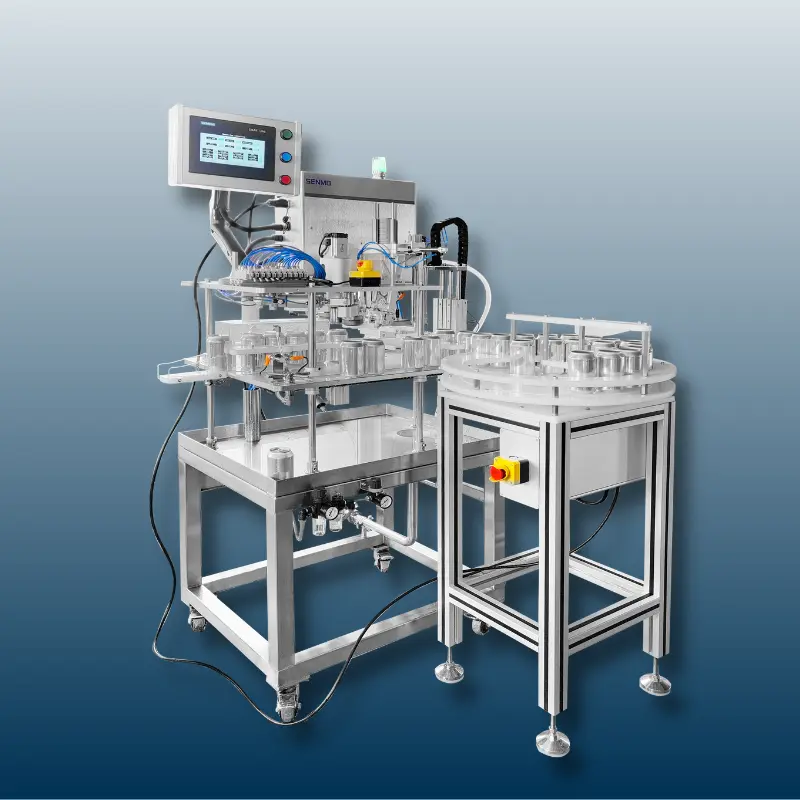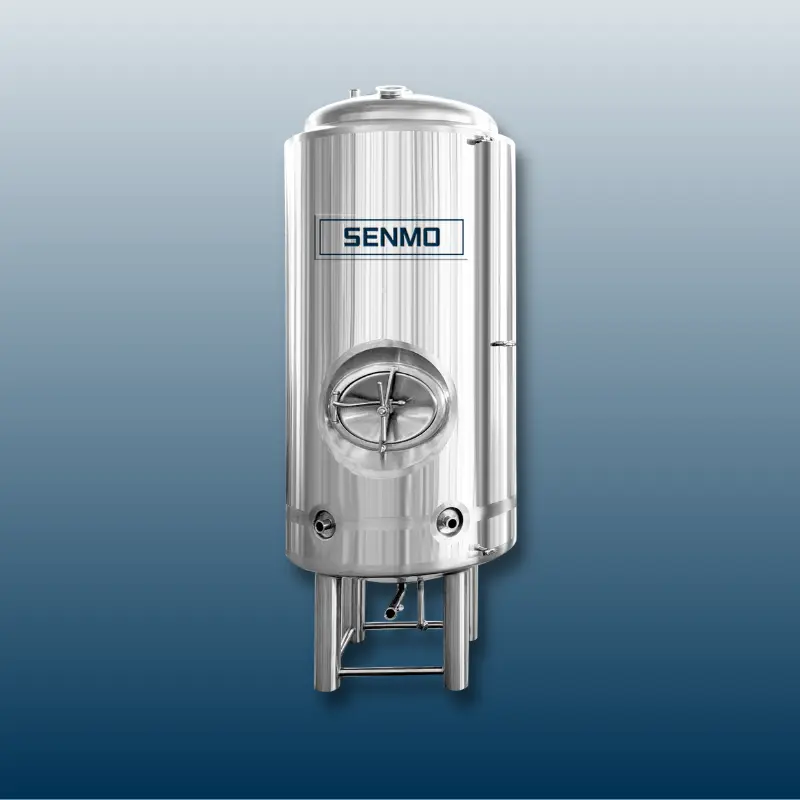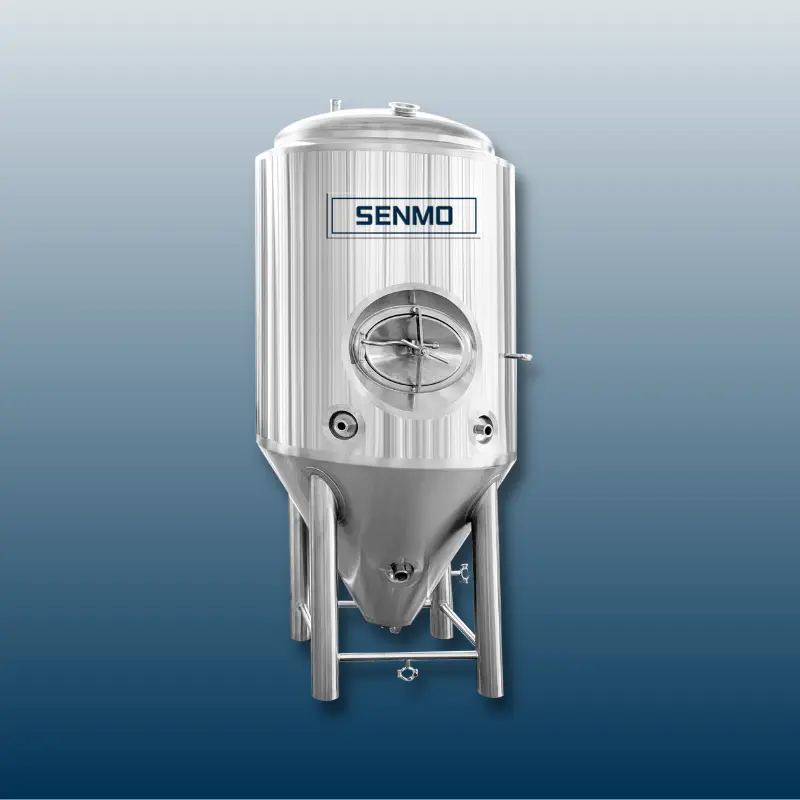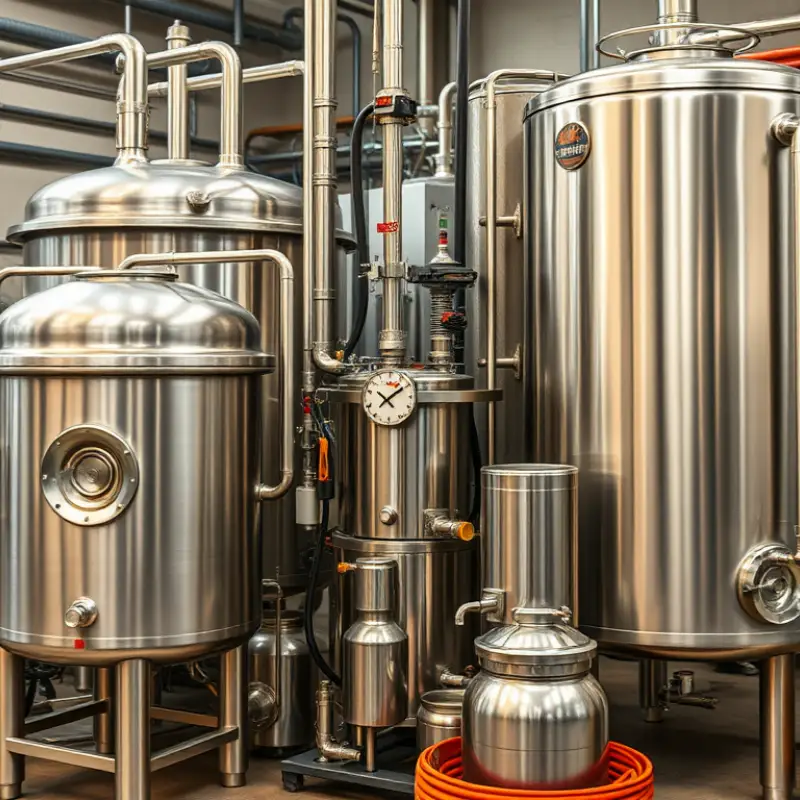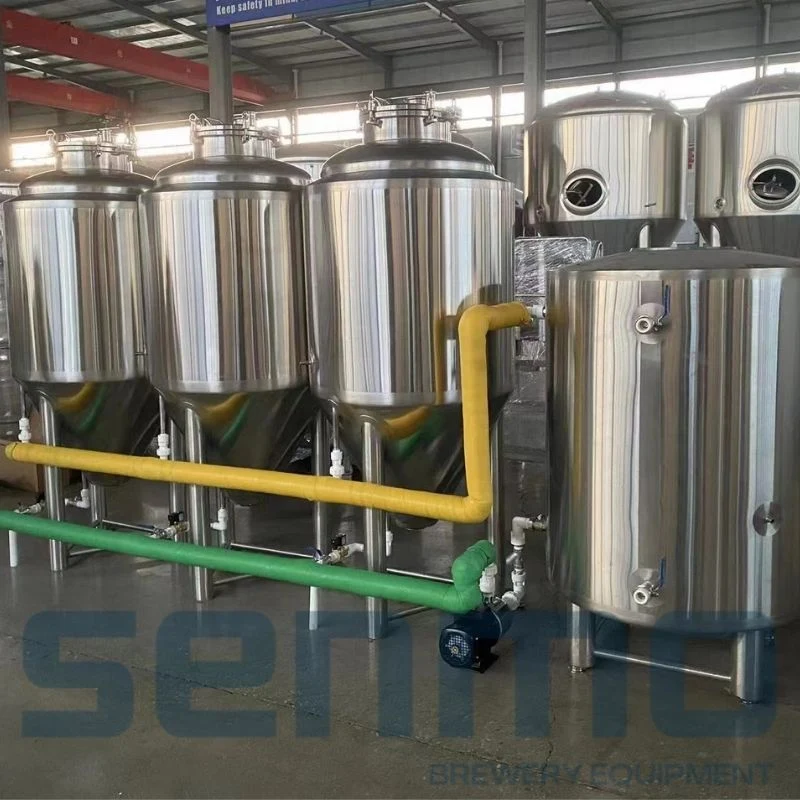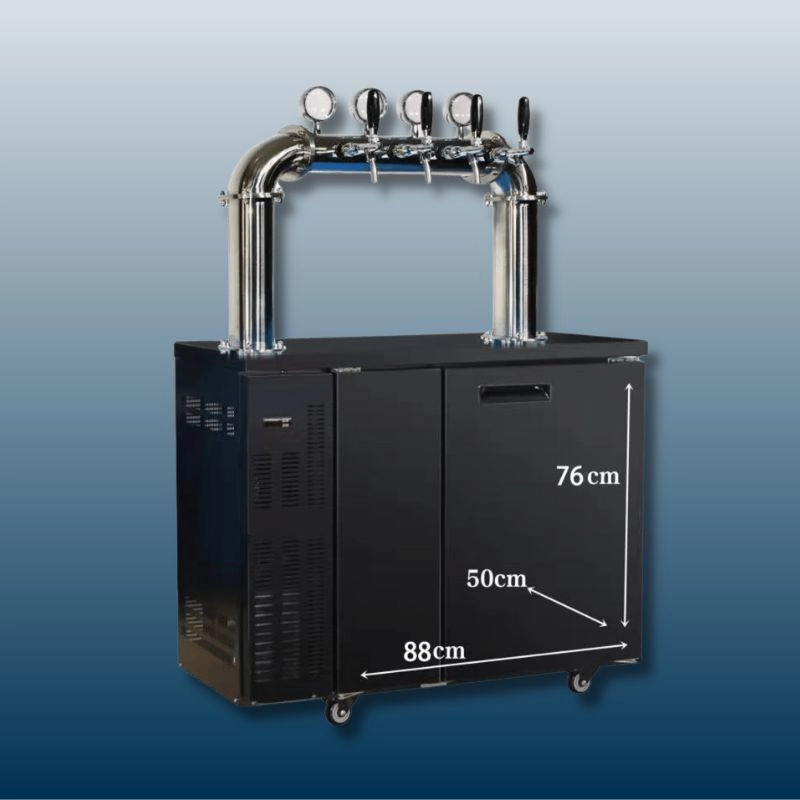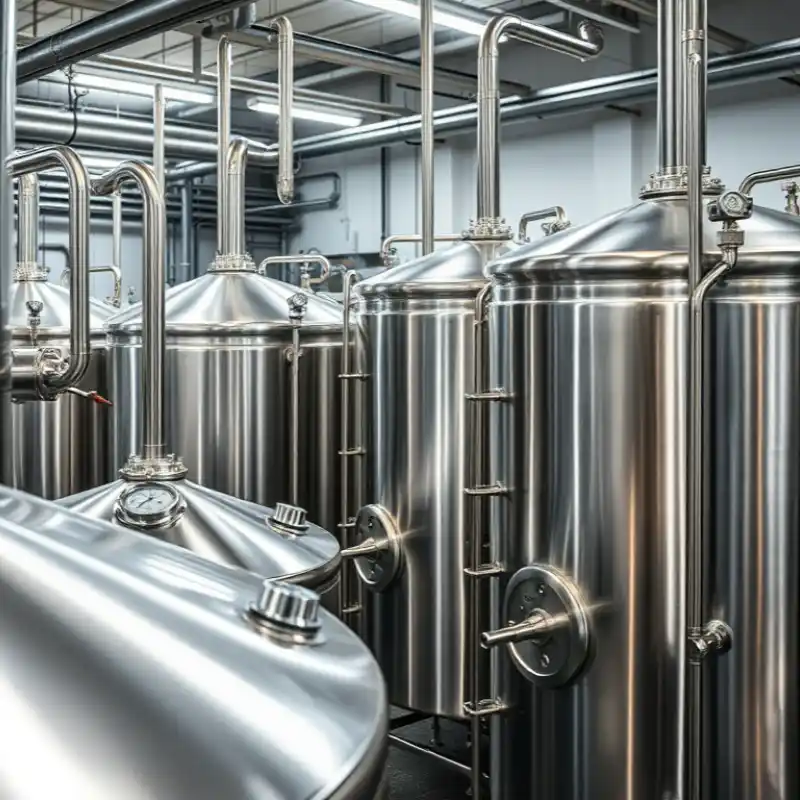Whether you are the owner of a craft brewery or a homebrewer with a passion for brewing, having an efficient and scalable brewing system is key to success. In the booming craft beer industry, 1000l brewing systems have become a popular choice.
So, what exactly is a 1000l brewing system, and what components does it consist of?
A 1000l brewing system is a large-scale brewing system that is capable of producing up to 1000 liters of beer per batch. It typically consists of several key components, including a mash tun, a lauter tun, a brew kettle, a whirlpool, a hot liquor tank, and a cold liquor tank.

The mash tun is where the grains are mixed with hot water to create a mash, which is then transferred to the lauter tun. The lauter tun is where the liquid wort is separated from the spent grains. The brew kettle is where the wort is boiled with hops and other ingredients, and the whirlpool is where the wort is separated from the hop solids. The hot liquor tank is used to heat water for the brewing process, while the cold liquor tank is used to store cold water for cooling the wort.
In addition to these key components, a 1000l brewing system may also include a variety of other equipment, such as pumps, valves, heat exchangers, and control systems. These components work together to create a controlled and efficient brewing process.
Features of 1000 liter brewing system
Moderate size: The 1000L brewing system is in the mid-size range, making it suitable for all types of brewers, whether they are a start-up or an established brewery. This scale is capable of meeting the needs of low-volume production and can be easily expanded to meet growing market demand.
Efficient production: The 1000-liter brewing system has efficient production capacity and can produce a large amount of beer in a relatively short period of time. For commercial breweries, this can increase production, reduce production time, and reduce costs.
Flexibility: Brewing systems of this size typically have some flexibility to accommodate different types of beer brewing, including different styles and flavors of beer. This allows winemakers to create diverse product lines that meet the needs of consumers with different tastes.
Automation and control: Modern 1,000-liter brewing systems are often equipped with advanced automation and control systems that can monitor and adjust the brewing process to ensure beer quality and consistency. This automation helps reduce manual operations and improve production efficiency.
So, what brewery usage scenarios can a 1000l brewing system meet?
One of the main advantages of a 1000l brewing system is its versatility. It can be used to produce a wide range of beer styles, from light lagers to heavy stouts. It is also suitable for both small and large breweries, as it can produce a significant amount of beer per batch.
A 1000l brewing system is ideal for breweries that are looking to scale up their production. It allows breweries to produce larger quantities of beer without sacrificing quality or consistency. It also allows breweries to experiment with new recipes and ingredients, as the larger batch size provides more room for experimentation.
Another usage scenario for a 1000l brewing system is contract brewing. Contract brewing is when a brewery produces beer on behalf of another company or brand. A 1000l brewing system is ideal for contract brewing, as it allows the contract brewer to produce large quantities of beer for their clients.
A 1000l brewing system is also suitable for breweries that have a high demand for their beer. It allows breweries to produce a large quantity of beer in a single batch, which can help to meet demand and reduce production costs.
In addition to these usage scenarios, a 1000l brewing system can also be used for events and festivals. It allows breweries to produce a large quantity of beer in a short amount of time, which is ideal for events where there is a high demand for beer.
Strengths and Opportunities
Market Growth: The craft beer market continues to grow globally, with rising consumer demand for unique taste and quality. Owning a 1,000-liter brewing system allows brewers to better meet market demand and explore new beer ideas.
Improve competitiveness: As competition becomes increasingly fierce, brewers need to improve their product quality and production efficiency to remain competitive. The 1000 liter brewing system provides the opportunity to produce high quality beer and gain a niche in the market.
Sustainability: Some 1,000-liter brewing systems are designed with a more environmentally friendly brewing process, helping to reduce resource consumption and waste generation. This is in line with modern society’s focus on sustainability and can be part of the market appeal.
1,000-liter brewing systems represent the future of the craft beer industry. Its modest size, efficient production and flexibility make it ideal for different types of brewers. As the craft beer market continues to grow, owning a 1,000-liter brewing system can bring new opportunities to brewers and help them stand out in this highly competitive industry.
For example
For the medium-sized brewery of "Sunshine Brewery", they decided to invest in a 1000 liter brewing system. The following are the specific data and application examples of the 1000-liter brewing system they purchased:
Saccharification/lauter tank: They chose a stainless steel 1000 liter mash/lauter tank with dimensions of 1.2 meters in diameter, 2.0 meters in height and a weight of approximately 300 kg. The saccharification/lauter tank is equipped with temperature control system, stirring device and filtration system, and the price is 7000 US dollars.
Fermentation tank: In order to control the fermentation process, Sunshine Brewery chose a stainless steel 1000 liter fermentation tank. The dimensions of the fermenter are 1.4 meters in diameter, 2.5 meters in height and weigh approximately 500 kilograms. It has temperature control, pressure relief, and a cleaning system for $3,500.
Cooling equipment: To cool down the wort and control the fermentation temperature, they installed a cooling tower system. The price of this cooling device is $2500.
Packaging equipment: In order to filter, fill and package beer, Sunshine Brewery chose a set of packaging equipment for a small and medium-sized 1000-liter brewing system. The set includes a semi-automatic filling machine, a screen filter and a bottle washer for $8,000.
With this 1000 liter brewing system, Sunshine Brewery is able to brew high quality beer. They use a mashing/lauter tank to mix the grains with hot water and do the mashing and lautering process. Fermenters are used to control the fermentation process that turns wort into beer. Cooling equipment helps them cool down the wort to ensure the right temperature for fermentation. Finally, they use packaging equipment to filter, bottle and package the beer for sale and distribution.
The 1000 liter brewing system is a practical and efficient choice for medium-sized breweries. By choosing the right mash/lauter tanks, fermenters, cooling equipment and packaging equipment, breweries can achieve high-quality beer production and efficient operations. Through the above example, we can see the investment of Sunshine Brewery in purchasing a 1000 liter brewing system. Their investments include:
1000 liter mash/lauter tank: $7000
1000 liter fermenter: $3500
Cooling equipment: $2,500
Packaging equipment: $8,000
Therefore, they invested a total of $21,000 in purchasing and installing a 1,000-liter brewing system. These investments will help Sunshine Brewery meet production targets and meet market demand.
In addition to equipment costs, they also need to consider other expenses such as transportation and installation costs, equipment maintenance costs, energy consumption, and employee salaries. These expenses will have an impact on overall operating costs and require thorough consideration and planning.
By introducing a 1000 liter brewing system, Sunshine Brewery will be able to scale up production, improve production efficiency and increase sales. They can produce more beer to meet market demand and use a brewing system of this scale to innovate and experiment to develop new beer flavors and styles.
Finally, Sunshine Brewery required market research and business planning to ensure their investment was viable and had a good return. They should consider factors such as market demand, competitive environment, and consumer trends to develop strategies and sales plans.
All in all, the 1000 liter brewing system provides a medium-scale production solution for breweries. With sound investment and efficient operations, a brewery can achieve production goals and succeed in a competitive market.
The prices in this article are the approximate prices of our past customers. For specific practical operations, please contact our experts to calculate the cost with the specific size of your brewery. If you're considering a brewery program, get in touch.
FAQ
1. What is a 1000L brewing system?
A 1000L brewing system is a brewery setup with a total capacity of 1000 liters (approximately 264 gallons). It includes various vessels and equipment used in the beer production process.
2. What components does a 1000L brewing system consist of?
A typical 1000L brewing system consists of a mash tun, lauter tun, boil kettle, hot liquor tank (HLT), fermentation tanks, a cooling system, control panel, pumps, and often additional equipment for specific brewing needs.
3. How many batches can I brew with a 1000L system?
The number of batches you can brew with a 1000L system depends on factors like production time, fermentation time, and packaging volume. On average, a brewery may produce several batches per week.
4. Can I brew different beer styles with this system?
Yes, a 1000L brewing system is versatile and allows you to brew a wide range of beer styles. Brewers can adjust recipes and techniques to create various beer flavors and styles.
5. Is this system suitable for a startup brewery?
Yes, a 1000L brewing system is often a good choice for startup breweries. It offers a reasonable production capacity while allowing room for expansion as your brewery grows.
6. What's the brewing process with a 1000L system?
The brewing process involves mashing, lautering, boiling, cooling, fermentation, and packaging. Each step is carefully managed to create high-quality beer.
7. How do I control the brewing process?
Many 1000L systems come with a control panel that allows you to monitor and adjust factors like temperature, timing, and pump operations, ensuring precise control over the brewing process.
8. How long does it take to brew a batch of beer with this system?
The time required to brew a batch of beer varies depending on the beer style and specific techniques used. On average, it can take several hours for brewing, followed by fermentation and conditioning periods that may last weeks to months.
9. Can I expand my production with this system?
Yes, a 1000L brewing system can be expanded by adding more fermentation tanks or increasing batch frequency to meet growing demand.
10. What maintenance is required for the equipment?
Routine cleaning and sanitation are essential for maintaining the equipment's hygiene. Regular inspection, maintenance, and cleaning of tanks, pipes, and pumps are necessary for optimal operation.
11. How do I store and handle ingredients like malt and hops?
- Ingredients like malt and hops should be stored in a cool, dry place to maintain freshness. Proper handling and storage procedures help ensure ingredient quality.
12. Is training available for using the system?
We offer training and support to help brewers operate and maintain their 1000L brewing systems effectively.
These FAQs provide a starting point for understanding a 1000L brewing system and its use in a brewery. However, specific questions and considerations may vary depending on your brewery's unique requirements and brewing practices.







